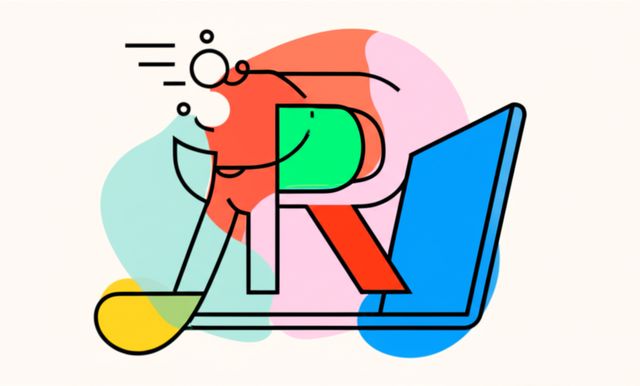R (Programming Language)
R, a free and open-source programming language, has gained popularity in data analysis, statistical computing, and machine learning. It provides a wide range of statistical and graphical techniques for data manipulation, visualization, and modeling. Whether you are a student, researcher, or professional, learning R can empower you with the tools to analyze and interpret data effectively.
Why Learn R?
There are numerous benefits to learning R:
- Versatility: R is adaptable to various industries, including healthcare, finance, marketing, and social sciences, making it a valuable skill for professionals seeking to advance their careers.
- Open-source: Being open-source, R is free to use and modify, encouraging collaboration and community support.
- Data Visualization: R's robust graphical capabilities enable the creation of clear and informative data visualizations, aiding in data exploration and communication.
- Statistical Analysis: R offers a comprehensive suite of statistical functions for data analysis, hypothesis testing, and modeling, empowering users to draw meaningful insights from data.
- Machine Learning: R provides libraries for machine learning tasks, allowing users to build and evaluate predictive models for various applications.
Online Courses for Learning R
With its growing popularity, numerous online courses are available to help you learn R:
- Beginner-friendly: Courses designed for beginners provide a gentle introduction to R, covering its basics and fundamental concepts.
- Intermediate: These courses delve deeper into R's capabilities, exploring advanced techniques for data analysis, visualization, and statistical modeling.
- Specialized: Specialized courses focus on specific applications of R, such as machine learning, data science, or bioinformatics.
Tools and Software
To get started with R, you will need the following tools:
- R software: Download the latest version of R from the official website.
- RStudio: RStudio is an integrated development environment (IDE) that provides a user-friendly interface for R.
- Packages: R has a vast collection of packages that extend its functionality. Install necessary packages for your specific tasks.
Benefits of Learning R
Learning R offers tangible benefits:
- Career Advancement: R skills are in high demand across industries, making it a valuable asset for career growth.
- Enhanced Decision-making: R enables data-driven decision-making by providing tools for analyzing and interpreting data.
- Improved Problem-solving: By learning R, you develop critical thinking and problem-solving skills applicable to various fields.
- Personalized Insights: R allows you to customize analyses and visualizations, extracting personalized insights from data.
Projects and Applications
R is used in a wide range of projects and applications:
- Data Analysis: R is used to clean, manipulate, and analyze data for various purposes, such as hypothesis testing and trend identification.
- Statistical Modeling: R provides tools for building statistical models, such as regression models and time series models, to make predictions and draw inferences from data.
- Machine Learning: R offers libraries for machine learning tasks, such as classification and clustering, enabling the development of predictive models.
- Data Visualization: R's graphical capabilities allow users to create interactive and informative data visualizations, including charts, graphs, and maps.
Personality Traits and Interests
Individuals with the following traits and interests may find learning R particularly engaging:
- Analytical Mindset: R is suitable for individuals who enjoy analyzing data, identifying patterns, and drawing conclusions.
- Problem-solving: R provides tools for solving complex problems and making informed decisions based on data.
- Curiosity: R empowers users to explore data and uncover hidden insights, catering to those with a curious nature.
- Communication Skills: R's visualization capabilities enable users to communicate data findings effectively.
Employer Perspective
Employers value professionals with R skills, recognizing the following benefits:
- Data-driven Decision-making: R enables employees to make data-informed decisions, improving business outcomes.
- Efficiency and Productivity: R's automation capabilities enhance efficiency and productivity in data analysis tasks.
- Competitive Advantage: R skills provide a competitive edge in industries where data analysis is crucial.
Online Courses and Learning
Online courses serve as effective learning tools for R:
- Structured Learning: Online courses provide a structured approach to learning R, covering fundamental concepts and guiding users through practical examples.
- Skill Development: Through lectures, assignments, and projects, online courses help learners develop proficiency in R.
- Interactive Environment: Interactive labs and discussions within online courses foster engagement and enhance understanding.
- Flexibility: Online courses offer flexibility, allowing learners to study at their own pace and schedule.
- Support and Community: Online courses often provide access to instructors, teaching assistants, and peer support, creating a learning community.
While online courses can provide a solid foundation, they may not be sufficient for complete mastery of R. Hands-on experience, personal projects, and continuous learning are essential for developing expertise in R.


